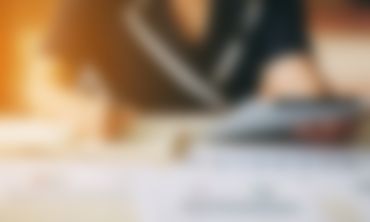Banking
Banks have become more popular now than ever. People want to reap all the incredible benefits that come with these financial institutions. As a bank member, you can do things such as access loans for business expansion and other investments. Imagine being able to comfortably save some cash for a rainy day or for something you have always longed to purchase. What's even better is that banks offer various banking options, meaning that if one bank account doesn't work for you, you can always consider another.
Here are six bank accounts that you can open today, depending on your current situation or financial objectives.
Checking Account
 If you are looking for an account for your daily expenses, this is it. Your checking account will be like your home base. It is where your paycheck gets deposited, and you use the cash to pay your bills. These accounts are linked to debit cards to allow you to access your money easily. The cards also come in handy when writing checks or making ATM withdrawals.
If you are looking for an account for your daily expenses, this is it. Your checking account will be like your home base. It is where your paycheck gets deposited, and you use the cash to pay your bills. These accounts are linked to debit cards to allow you to access your money easily. The cards also come in handy when writing checks or making ATM withdrawals.
A checking account is ideal for you if your bank account is not that large and you want to enjoy all the perks of a debit card. Even so, remember that these accounts do not earn any interest, and you may have to pay maintenance fees.
Savings Account
It always helps to have some money set aside for expenses that might arise in the future. If your greatest desire is to do that, consider a savings account. You can set it up together with your checking account. It enables you to spend your money responsibly. Some of the great features of a savings account include:
- You can access your cash at any time and transfer it to your checking account
- You don't have to pay any maintenance fees
- Your money earns interest, even though, in most cases, it is not much
You can open a savings account for you and your kid. It marks the start of a relationship with the bank that you trust and deem reliable. Unfortunately, a savings account doesn't come with a debit card. Also, some institutions may limit the number of withdrawals you can make from your account monthly.
Subprime Bank Account
 A subprime bank account is one that you open at a subprime bank. If you are underbanked or cannot easily access traditional banks' financial services because of your low credit rating, this account suits you. Subprime lenders already know that you do not qualify for a loan from retail banks, and you might default on the loan if they give you. That is why they charge a considerably high interest rate.
A subprime bank account is one that you open at a subprime bank. If you are underbanked or cannot easily access traditional banks' financial services because of your low credit rating, this account suits you. Subprime lenders already know that you do not qualify for a loan from retail banks, and you might default on the loan if they give you. That is why they charge a considerably high interest rate.
You and your subprime lender should be honest with each other. They must be comfortable with the fact that they are taking a risk by lending you the money you need. Lately, securitization has been introduced to help lenders eliminate the risk of providing loans to subprime borrowers. The risk involved is transferred to an investor who becomes the new owner of the loan through the process.
Money Market Account
If you want nothing but an account that allows you to enjoy more interest than a savings account, open a money market account. Think of it as the offspring of a savings and checking account because it comes with the features of both. With it, you can have a huge balance in your account, and watch it earn you some extra cash. If you have 'big' financial goals, a money market account is a great place to store your money.
However, like with all other bank accounts, it has a few drawbacks. These include the following.
- Check-writing privileges and monthly withdrawals & transfers may be limited
- The account's minimum balance requirements are a bit high when compared to those of other accounts
- There's minimal earned interest, which is taxable
Retirement Account
 As you might already know from this account's name, it is for someone who wants to save some money for their old age. Many financial institutions allow members to set up Individual Retirement Arrangements (IRAs) and other types of retirement accounts such as 401(k) plans. Most of these accounts come with enticing tax advantages. Some of them enable you to invest your cash in something like the stock market to get greater returns in the future.
As you might already know from this account's name, it is for someone who wants to save some money for their old age. Many financial institutions allow members to set up Individual Retirement Arrangements (IRAs) and other types of retirement accounts such as 401(k) plans. Most of these accounts come with enticing tax advantages. Some of them enable you to invest your cash in something like the stock market to get greater returns in the future.
You need a retirement account because it guarantees that your old age will not be riddled with financial constraints. Even so, there might be a few strings attached to the benefits promised. For instance, should you think about withdrawing your funds early, be prepared to pay penalties or taxes. Also, the cash saved up in retirement accounts does not have any federal insurance.
Certificates of Deposit (CDs)
This banking option is ideal for you if you are looking for a method to invest your cash for a particular duration. These accounts have variable or fixed interest rates. Unlike regular savings accounts, CDs require you to wait until the maturity date to withdraw your money. The longer the period you set, the higher the interest your account earns. Note that with CDs, early withdrawals attract expensive fees.
Final Thoughts
These banking options provided above are offered at most banks/financial institutions and credit unions. Each of them could be perfect for you depending on the advantages you want to enjoy and what you want for your future. Before making up your mind about the bank account to set up, make sure you understand both the perks and the downsides it has.
